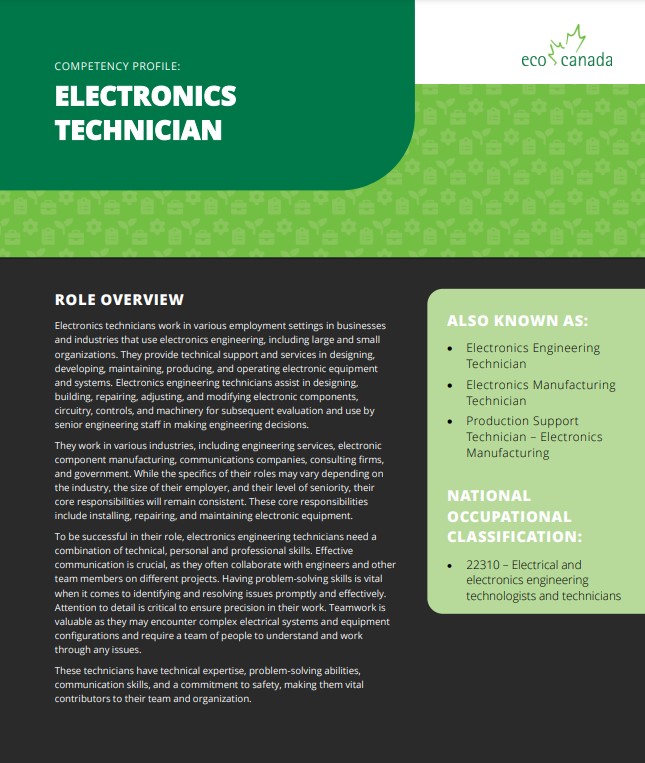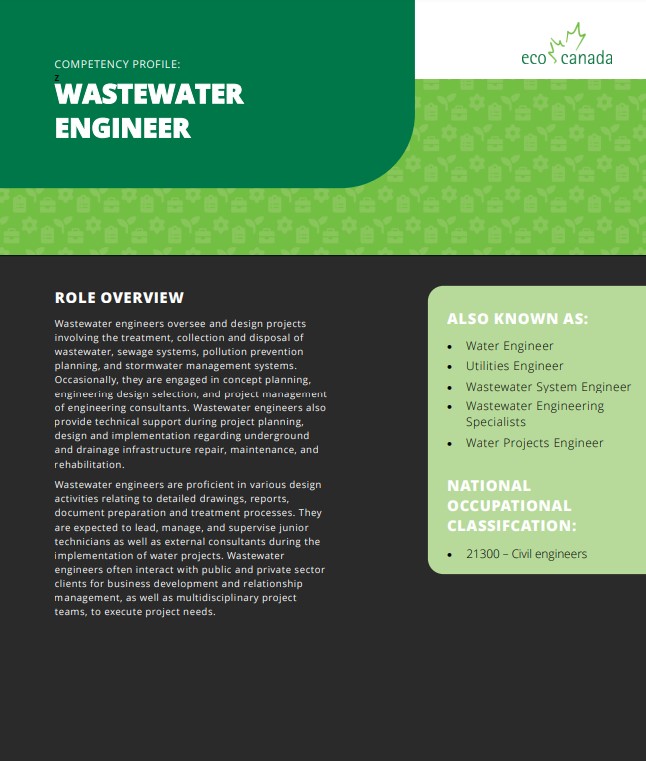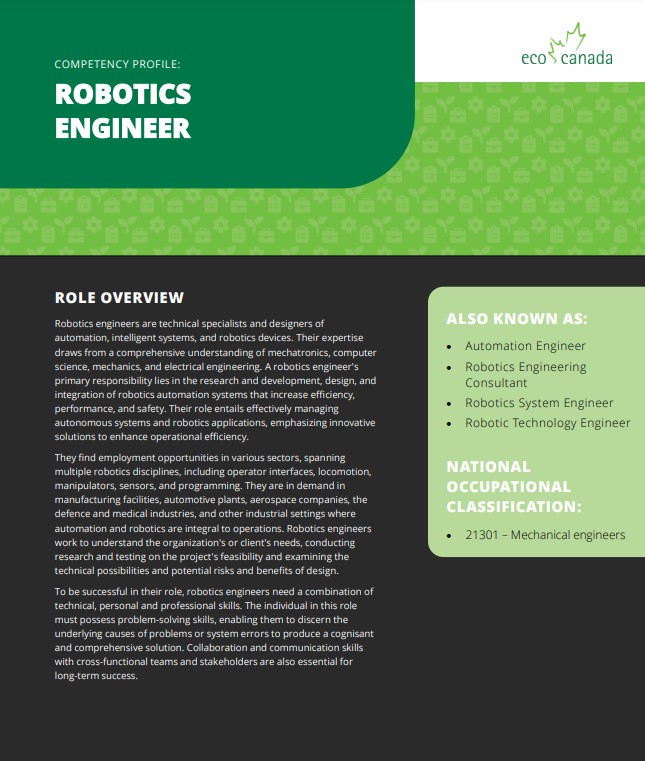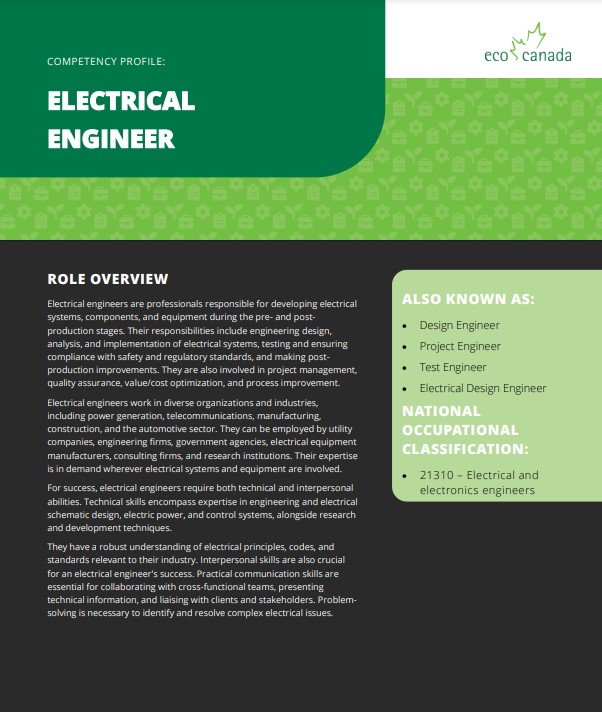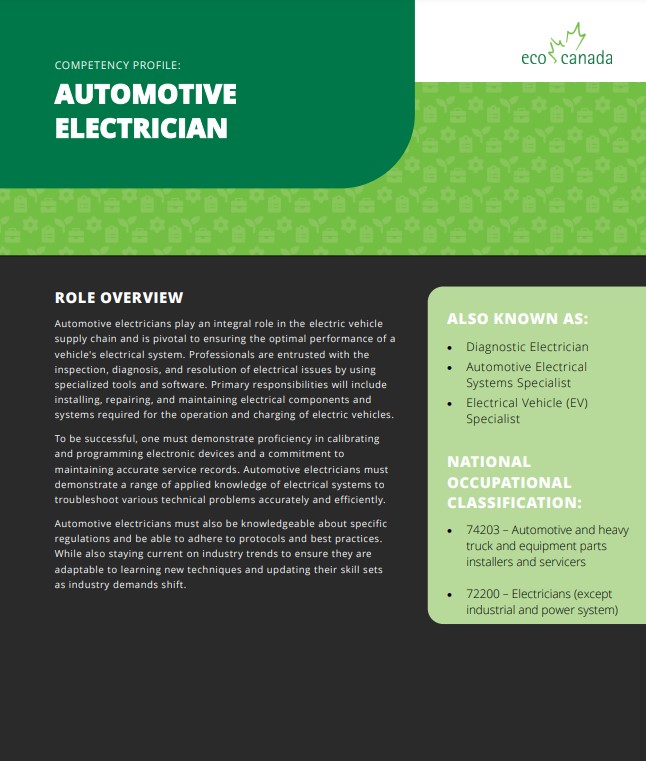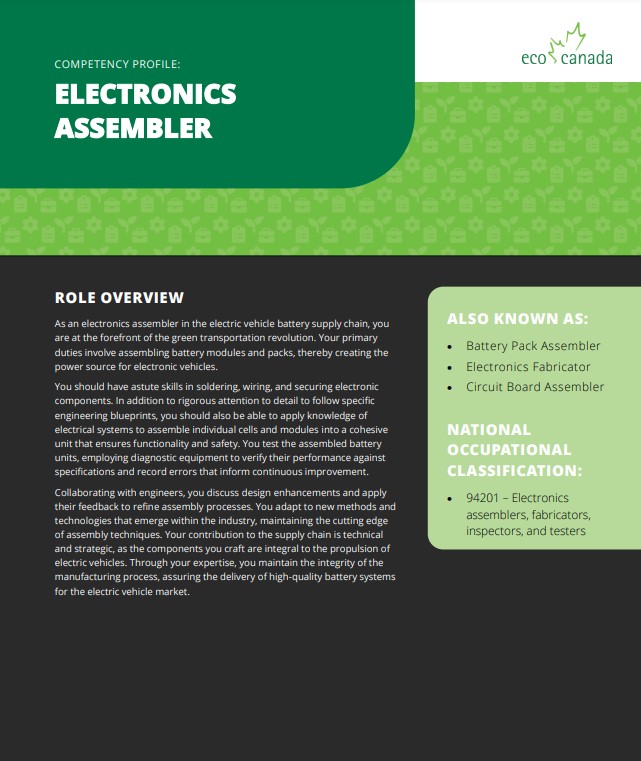Research
Looking for Validators for our New EV Battery Supply Chain Sector Competency Profiles
As we prepare for the upcoming release of new competency profiles, ECO Canada is actively seeking individuals interested in serving as validators for these profiles.
Below, you can find samples of the currently available profiles.
Help Shape the Latest Environmental Research
We need your help to build the world’s leading environmental workforce right here in Canada.
We are currently researching Canada’s electric vehicle (EV) battery supply chain with the goal of analyzing the labour needs of relevant sectors, identifying competency requirements for workers, and guiding curriculum development for new training programs.
As part of this project, we are developing an occupational map of the sector alongside competency profiles for various roles that will be used to support workforce planning, guide policy and program development, and help with skills, qualifications, and training requirements to be a part of Canada’s growing EV sector. These resources will be published on ECO Canada’s website in early 2024 and be available for free.
We are looking for experts currently working, supervising, or recently employed to validate and provide feedback for the following roles.
After going through the profiles listed below, please select the profile you want to review.
Each validator will receive a $100 Visa Gift Card and be created in the final profile!
Upon submitting the application form, we will reach out to you and provide the complete profile for your review.
Mining Profiles
Unvalidated Competency Profiles for Review
Mining competency profiles include activities related to the management, improvement and exploration of the earth’s surface, including forests, parks, agriculture and public land, as well as underground and underwater areas. These activities oversee projects involving the design of mechanical products and systems, treatment and pollution prevention, preservation of the environment and generation of resources for consumer products (e.g. power and water).
Battery Production Profiles
Unvalidated Competency Profiles for Review
These competency profiles include economic activities related to designing and developing electrical systems, automation, intelligent systems, and other machinery. They work in various industries and focus on processes and components that optimize efficiency and productivity while converting raw materials into specialized products.
EV Production Profiles
Unvalidated Competency Profiles for Review
These competency profiles include economic activities related to the design, manufacturing, production and maintenance of electric vehicles and batteries. They also involve establishing product and quality control standards, overseeing modifications, and resolving technical problems.
Recycling & Recovery Profiles
Unvalidated Competency Profiles for Review
Recycling and recovery competency profiles include activities related to waste management, processes, and the implementation of recycling programs. They ensure companies follow local, federal, and provincial government regulations and observe permit conditions and best practices while providing technical and operational services.
SUSTAINABILITY PROFESSIONALS PROFILES
Unvalidated Competency Profiles for Review
Sustainability competency profiles include activities related to developing and implementing programs, monitoring trends and preparing infrastructure against changes in weather over time, and verifying sustainability efforts, including emissions reduction, carbon footprint and other environmental impacts.
In Partnership With




